MercoPress. South Atlantic News Agency
Environment
-
Monday, October 3rd 2011 - 21:29 UTC
Gillnets pushing Maui dolphins towards extinction says marine experts

The world's most endangered sea dolphins are sliding towards extinction in the face of damaging fishing methods, experts are warning. Hector's dolphins are found only around New Zealand, where the population has fallen from 30,000 to around 7,000 since nylon fishing nets came into use in the 1970s, a conference on marine bio-diversity in Aberdeen will hear on Thursday.
-
Monday, October 3rd 2011 - 07:46 UTC
Eight countries agree to giant shark sanctuaries banning commercial fishing
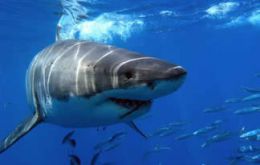
Leaders from eight countries launched an initiative to prevent the extinction of sharks, symbolizing the latest development in the growing movement to safeguard the ocean's top predator. Members of the coalition committed to a declaration supporting the development of sanctuaries that end commercial shark fishing in their national waters.
-
Monday, October 3rd 2011 - 07:14 UTC
“Ozone hole” over the Arctic claims NASA; blames long spell of cold weather
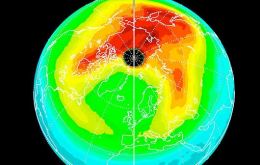
Ozone loss over the Arctic this year was so severe that for the first time it could be called an “ozone hole” like the Antarctic one, scientists report. About 20km above the ground, 80% of the ozone was lost, they say.
-
Saturday, October 1st 2011 - 01:12 UTC
CFK opens Argentina’s largest wind farm in Patagonia: 80MW

President Cristina Fernandez opened Friday in Patagonia the largest wind farm in Argentina. The Rawson Aeolic Park will eventually generate 80 MW sufficient to supply 100.000 homes according to the private investors.
-
Saturday, October 1st 2011 - 01:02 UTC
Young whale dies beached 800 meters inland from the British east coast

A young whale which died after it beached in the Humber Estuary is probably of a species rarely found stranded on the east British coast, conservationists have said.
-
Friday, September 30th 2011 - 05:28 UTC
Rare white humpback whale calf spotted near Australia’s Great Barrier Reef
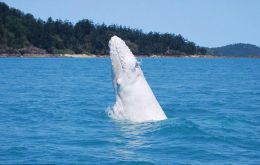
An extremely rare white humpback whale calf has been spotted near Australia's Great Barrier Reef in an event witnesses described Thursday as a “once in a lifetime experience”.
-
Thursday, September 29th 2011 - 06:16 UTC
Bolivian will resume month-long protests against a road in the Amazon

Bolivian demonstrators opposed to the construction of a road in the Amazon vowed on Wednesday to resume a month-long protest march that has become a major challenge to leftist President Evo Morales.
-
Thursday, September 29th 2011 - 06:09 UTC
Brazilian judge orders halt to construction of third largest dam in the world
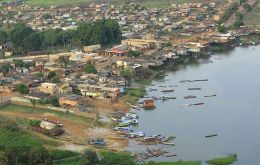
A judge in Brazil has ordered a halt to construction of a multi-billion-dollar dam project in the Amazon region. Judge Carlos Castro Martins barred any work that would interfere with the natural flow of the Xingu river.
-
Tuesday, September 27th 2011 - 01:36 UTC
Chilean company farming algae for future production of bio-fuels
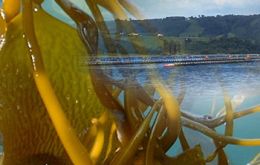
BAL Chile SA is dedicated to farming algae on the island of Chiloé and in a second stage, plans to produce bio-fuels for industrial use, announced the company’s CEO Benjamin González.
-
Friday, September 23rd 2011 - 19:53 UTC
HMS Protector ready for Antarctica; no helicopter on maiden deployment

Icebreaker HMS Protector, formerly MV Polarbjørn, has spent the spring and summer steadily being converted into a hydrographic survey ship to plug the gap left by HMS Endurance which nearly sank during a flooding incident in late 2008.
